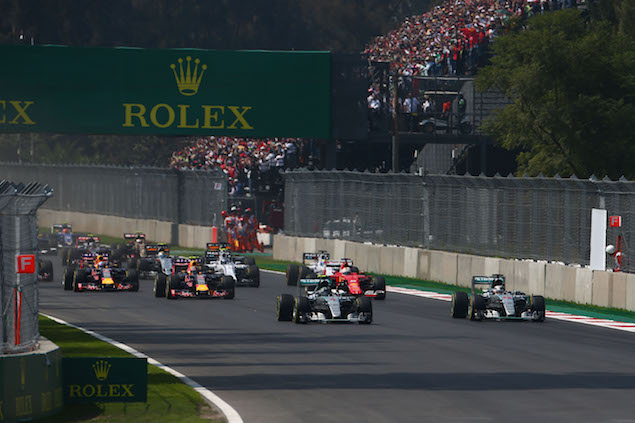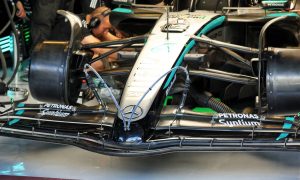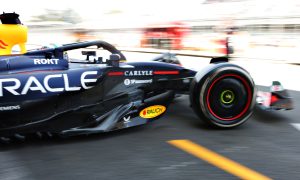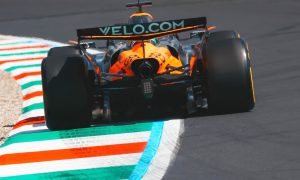
The current power unit regulations in F1 make it easier for outside manufacturers to come in to the sport, according to Mercedes' Andy Cowell.
V6 turbo power units were introduced at the start of the 2014 season and so far have only seen Honda join Mercedes, Ferrari and Renault as a manufacturer in the sport. Cowell - who is the managing director of Mercedes AMG High Performance Powertrains - believes previous regulations were too detached from what most engine manufacturers focus on.
"Because the V10s and V8s were so specialist – 20,000rpm and 19,000rpm naturally aspirated engines – they were very peculiar to Formula One," Cowell said. "There’s not even any other motor sport categories doing that and definitely not road cars.
"I think we do still learn from Daimler and those initial links that we set up with Daimler on the technology, those communications are still in place and the dialogue is two way. We are still picking up pieces of technology and we are feeding back bits of technology. As long as that is in place, Formula One with this set of regulations should be interesting to works manufacturers."
And Cowell doesn't believe Mercedes' dominance over the past two years should be seen as a deterrent by other manufacturers, insisting the tools are available to everyone.
"I think that’s the thing that pulls them in, but does it get to the point where they think that would be great but ask what is needed to win – because there is no point in entering if you don’t win? Well, there’s no unobtainium in [the engine], you don’t need to travel to Mars. The steels that are used are used in aerospace and automotive, the aluminiums are used in aerospace and automotive, the fastners are not remarkable, the shapes are evolved but they are all shapes that other people can come up with. There aren’t any magic magnets in there, they are all magnets that you can read about in Wikipedia and source from three or four manufacturers around the world.
"It’s all doable, but do you need to get set up with a group of people that have got the right ambition and attitude? And do you need four or five dynos and connections with the right suppliers? Yes, you do. But it’s not impossible and it’s easier to do than in the V8 or V10 era. It’s easier for company X, which currently sells cars in the world and is doing an efficiency technology driver, to go ‘we want to compete in F1, let’s do it’.
"If we go back to 2000 the regulations fitted on one page and now they are on 18 pages, and that’s actually prescribing a lot of it. 20 years ago you used to spend days figuring out what the bore side should be or how many cylinders you should have, but now it’s in the regs. So I think it’s easier and it would be great if it happened."
The men behind the Renault F1 return
Who are the new Renault F1 juniors?
Key dates for the 2016 F1 season
Keep up to date with all the F1 news via Facebook and Twitter







